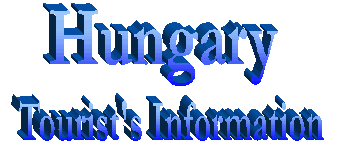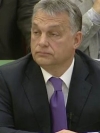
| Your partner as legal real estate agency, for all your investments and vacations in southern Transdanubia, the sunny thermal and holiday region of Hungary | ||||||||

|
||||||||
| Please click onto the photos to enlarge them | ||||||||
 In
the centre of Europe the relatively small state lies. 93.030 km˛,
35,919 square miles or one percent of the European landmass is covered
by it. Lain in the Basin of the Carpaths the country is surrounded by
the Alps in the west, the Danube and the Carpathian Mountains in the
north, the Drava in the Southwest. In the east and Southeast the
borders do not follow a clear topographic frame to Romania and Serbia.
From the north in the clockwise direction are Slovakia, Ukraine,
Romania, Serbia, Croatia, Slovenia and Austria the neighbours. About a
quarter of the country is hilly or covered by mountains, the rest is
flat country. The small and large Hungarian lowlands are lain close to
the Austrian border and extensively in the east of the Danube. Not far
from Szeged is lain the with 78 m or 256 ft lowest place, in the hilly
north is the Kékes with 1014 m or 3,327 ft the highest point of
the country. The north Hungarian mountains Mátra and Bükk
are already part of the Carpathian Mountains. Transdanubia - the
country in the west of the Danube - is predominantly a hill landscape,
which increases in the south to a low mountain range. Along the west
border some very small and low parts of the Alps are reach the country.
In
the centre of Europe the relatively small state lies. 93.030 km˛,
35,919 square miles or one percent of the European landmass is covered
by it. Lain in the Basin of the Carpaths the country is surrounded by
the Alps in the west, the Danube and the Carpathian Mountains in the
north, the Drava in the Southwest. In the east and Southeast the
borders do not follow a clear topographic frame to Romania and Serbia.
From the north in the clockwise direction are Slovakia, Ukraine,
Romania, Serbia, Croatia, Slovenia and Austria the neighbours. About a
quarter of the country is hilly or covered by mountains, the rest is
flat country. The small and large Hungarian lowlands are lain close to
the Austrian border and extensively in the east of the Danube. Not far
from Szeged is lain the with 78 m or 256 ft lowest place, in the hilly
north is the Kékes with 1014 m or 3,327 ft the highest point of
the country. The north Hungarian mountains Mátra and Bükk
are already part of the Carpathian Mountains. Transdanubia - the
country in the west of the Danube - is predominantly a hill landscape,
which increases in the south to a low mountain range. Along the west
border some very small and low parts of the Alps are reach the country.| Average values | Extreme values | |||
| Celsius | Fahrenheit | Celsius | Fahrenheit | |
| Yearly temperatures | 9,7° C | 49,5° F | ||
| Temperatures January | -2,1° C | 28.2 F | -30° C | - 22° F |
| Temperatures July | 20,0° C | 68,0° F | 38° C | 100° F |
| Precipitation lowlands | 470 - 550 mm | |||
| Precipitation northern mountains | 700 - 800 mm | |||
| Sun hours in the year | 1.700 h - 2.200 h |
|
||

|

|
|
|
|||

|

|

|

|
|||

|
|
|
|
|||
 On the one hand many members profess themselves of the minorities to
Hungarian as native language and maintain beside it its own language
and culture, on the other hand Hungary was made extremely smaller after
the First World War in the contract by Trianon and took away all mixed
populated areas on benefit of the neighbour states. One estimates that
there are 5 million Hungary outside of the country, that is half of
humans living in the country. The largest minority is the Roma, which
has however no officially accepted native language. The sources do not
give clear information over number of Roma; it can be 150.000 as well
as millions are possible. The second minority is still clear those are
the Germans, over 200.000 humans constitutes, of who however indicated
only scarcely 40.000 to prefer German as language. Further live in each
case around the hundred thousand Slovaks and Croats and some ten
thousand Romanians in the country. Poland, Greeks, Armenians,
Bulgarian, Ruthens and Ukrains are all - partially clearly - under
parts per thousand of the total population.
On the one hand many members profess themselves of the minorities to
Hungarian as native language and maintain beside it its own language
and culture, on the other hand Hungary was made extremely smaller after
the First World War in the contract by Trianon and took away all mixed
populated areas on benefit of the neighbour states. One estimates that
there are 5 million Hungary outside of the country, that is half of
humans living in the country. The largest minority is the Roma, which
has however no officially accepted native language. The sources do not
give clear information over number of Roma; it can be 150.000 as well
as millions are possible. The second minority is still clear those are
the Germans, over 200.000 humans constitutes, of who however indicated
only scarcely 40.000 to prefer German as language. Further live in each
case around the hundred thousand Slovaks and Croats and some ten
thousand Romanians in the country. Poland, Greeks, Armenians,
Bulgarian, Ruthens and Ukrains are all - partially clearly - under
parts per thousand of the total population. Hungary
changed its state-legal face in the past two decades dramatically. The
People's Republic does not exist any more, today is Hungary a republic
with a multiple party system and a democratically legitimised
government. From 1990 to 2002 majority conditions in the one-chamber
parliament and concomitantly the government changed with beautiful
regularity of the elections at the end of a four years old legislative
period. The Hungarians use the possibilities of the democracy. First in
2006 the social liberal coalition has been re-elected. In 2010 this has
been replaced by the rightwing populist party "Federation of Young
Democrats" (FIDESZ).
Hungary
changed its state-legal face in the past two decades dramatically. The
People's Republic does not exist any more, today is Hungary a republic
with a multiple party system and a democratically legitimised
government. From 1990 to 2002 majority conditions in the one-chamber
parliament and concomitantly the government changed with beautiful
regularity of the elections at the end of a four years old legislative
period. The Hungarians use the possibilities of the democracy. First in
2006 the social liberal coalition has been re-elected. In 2010 this has
been replaced by the rightwing populist party "Federation of Young
Democrats" (FIDESZ).
 A
president leads the republic, who is elected by the parliament for five
years in secret elections. To get into duty a majority of two third of
the representatives have to choose him, so a broad support of the
social forces is expected. In 2012 János Áder followed Pál Schmitt, who
resigned because he got his academic title by fraud, as President
of the Republic. The
President appoints ministers and proposes a Prime Minister to the
Parliament for election. This is the chief of the executive. His
election means at the same time the acceptance of its government
program. After the immense victory of the FIDESZ in April 2010, the
right-wing populist Viktor Orbán became Prime Minister again after
having been set out of duty eight years earlier in disgrace of the
voters. During his first term Hungary fell from being a leading reform
country to the problem child of Central Europe. Already during In the
first weeks of his second term breaking with the IMF and European
authorities is expected.
A
president leads the republic, who is elected by the parliament for five
years in secret elections. To get into duty a majority of two third of
the representatives have to choose him, so a broad support of the
social forces is expected. In 2012 János Áder followed Pál Schmitt, who
resigned because he got his academic title by fraud, as President
of the Republic. The
President appoints ministers and proposes a Prime Minister to the
Parliament for election. This is the chief of the executive. His
election means at the same time the acceptance of its government
program. After the immense victory of the FIDESZ in April 2010, the
right-wing populist Viktor Orbán became Prime Minister again after
having been set out of duty eight years earlier in disgrace of the
voters. During his first term Hungary fell from being a leading reform
country to the problem child of Central Europe. Already during In the
first weeks of his second term breaking with the IMF and European
authorities is expected.

|

|

|

| |||

|
 |
 |
 | |||
 |
 | |||||
|
|
|
Magyar Kúria Real Estate Limited with office in Várong, nearby the thermal bath of Igal in Hungary, looks at herself not as real estate agent only, but mostly as service enterprise around the subject real estate, it doesn't matter whether used or for construction of your house or vacation-home, on your own or a by us purchased property, as a vacation-house, or for living there. On behalf a house in the tourist centres, as for example Siófok at Lake Balaton we can offer you your own farmhouse in a for village tourism interesting settlements, or just a townhouse in Kaposvár, Pécs or other towns. We will help you with your cure or vacation and also if you plan to invest between Balaton and Drava, we work for you in the komitats Somogy, Tolna and Baranya. For all questions you can contact our customers service. |